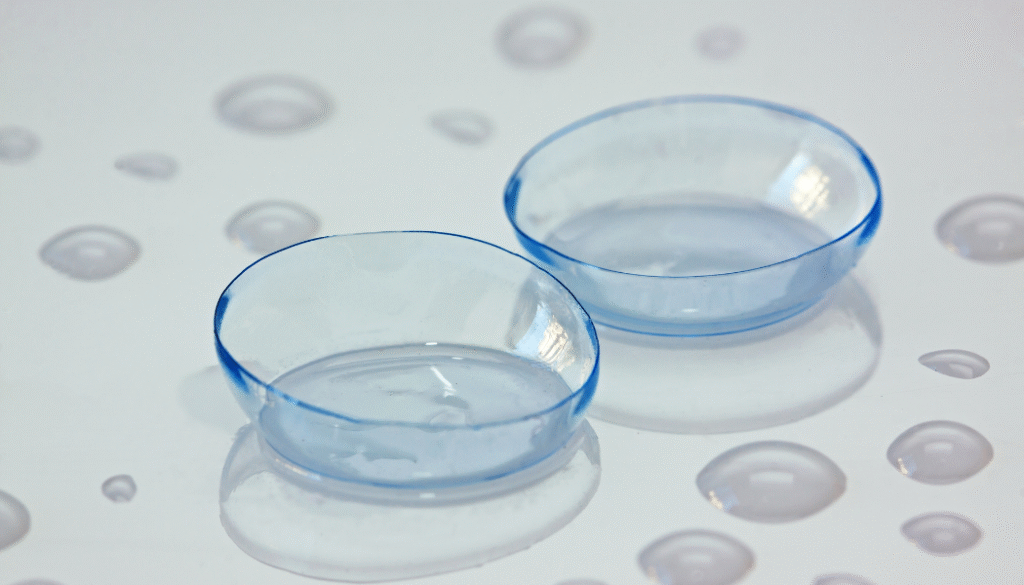
Gas Permeable (GP) or Rigid Gas Permeable (RGP) lenses are an option besides soft contacts. These rigid contact lenses are made from firm, oxygen permeable contacts that allow the eye to breathe.
While not as common as soft lenses, they provide unique benefits. Research and design improvements continue to make them a strong choice for many patients.
GP lenses do not contain water, which lowers the risk of bacteria growth. Protein buildup is less likely, keeping the surface clean and safe.
Made from durable material, GPs resist tearing and are easy to disinfect. They keep their firm shape and do not dry out. With proper care, one pair can last a year or longer. These are true hard contact alternatives that support long-term safety.
GPs are custom fit for each patient’s cornea shape and size. Their oxygen flow reduces issues like dry eyes that can occur with other lens types.
They also cover less of the eye surface due to their smaller size. While this may feel odd at first, many patients adjust and later find them just as comfortable as soft contacts.
Because of their rigid material, GPs keep a smooth and stable surface. They move with the eye while maintaining shape, giving sharp vision. They do not dry out, so clarity remains stable throughout the day.
Although they cost more at first, GPs are often cheaper long-term. Their long lifespan makes them more affordable than disposables. Making them to order takes time, but RGP lens durability means replacements are rare.
Patients with astigmatism may be told soft lenses will not work. GP lenses are an excellent choice in these cases. Their firm design stays in place and provides more stable correction. These are trusted astigmatism correction lenses that offer sharper results than many soft lens types.
The main drawback is the adjustment period. Because they are smaller, patients often feel the edge of the lens while blinking. This is called “lens awareness.”
It may take a few weeks to adapt. Many patients report that after this time, GPs feel just as comfortable, or better, than soft lenses.
GPs can help slow the progression of myopia, especially in children. They are also used in Orthokeratology (Ortho-K).
In Ortho-K, patients wear lenses at night. These reshape the cornea so that vision improves during the day. This makes GPs a useful option for both vision correction and corneal health lenses.
Gas permeable or RGP lenses are firm lenses that allow oxygen through to the cornea.
There is no difference. GP and RGP both describe the same type of oxygen-permeable hard lenses.
The main issue is the adaptation period. Some patients need weeks before they feel fully comfortable.
With proper fit, many patients wear them 10–12 hours. Your doctor may adjust this schedule for safety.
Looking for expert eye care, glasses, or vision therapy? Fill out the form and our team will get back to you quickly to schedule your appointment.
Give us a call to schedule your next appointment